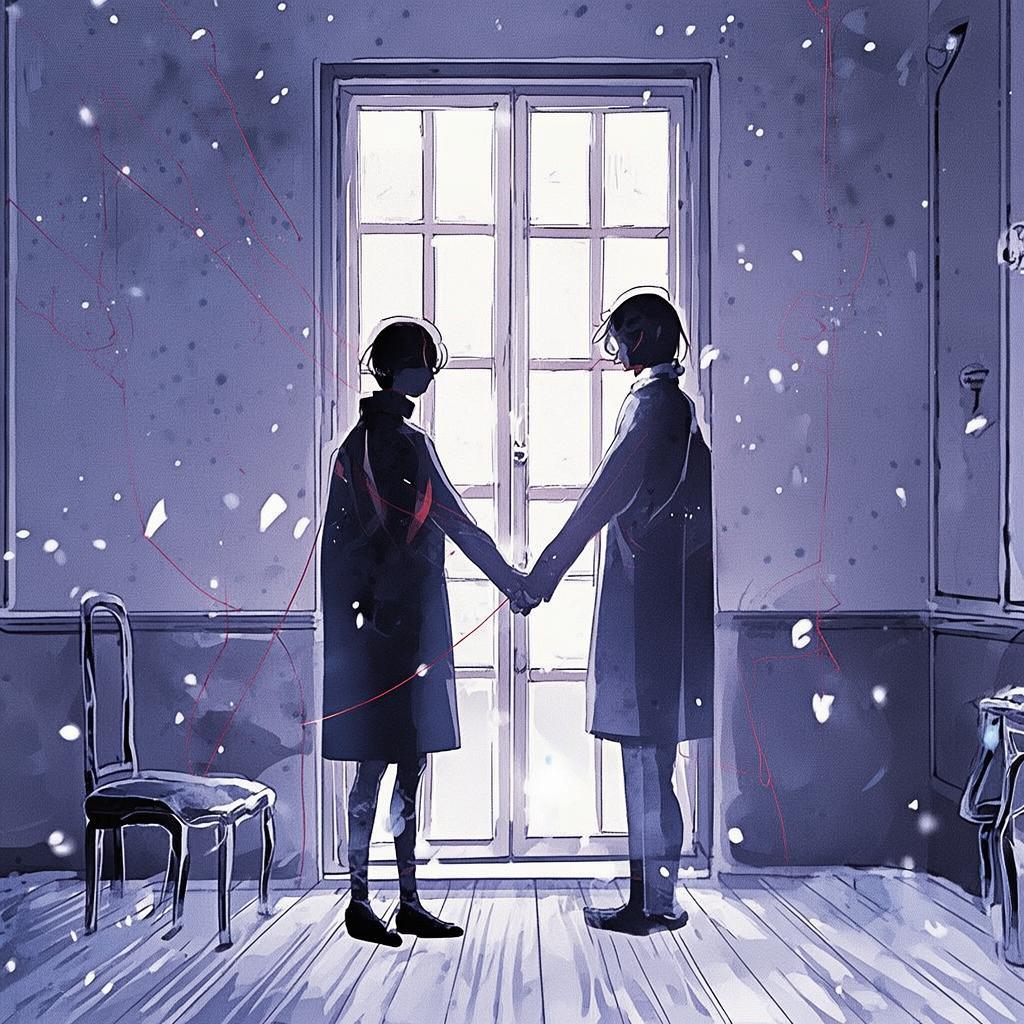The Lament of Orpheus: A Dance with Eternity
Apollo, the sun god, with his radiant locks and golden chariot, had always been the embodiment of light and life. Yet, in his heart, there burned a flame that was as dark and bitter as the night he was born. That flame was Eurydice, a mere mortal woman, whose laughter echoed in the halls of Olympus like a melody out of place.
Apollo's love for Eurydice was forbidden, a love that was as timeless as the stars in the night sky. They were bound by fate, a love that could never be fulfilled. Apollo, a god, was meant to be the life-giver, the light of the world, while Eurydice was but a shadow, a fleeting glimpse of beauty in a world of endless night.
The story begins on the banks of the Styx, where Eurydice's lifeless form lay, a victim of a serpent's venom. Apollo, with a heart torn to shreds, turned to the Fates, the weavers of destiny, in a desperate plea for a second chance.
The Fates granted Apollo a single opportunity to retrieve Eurydice from the Underworld. But there was a catch; he must not look back until he reached the world of the living. If he did, she would be lost to him forever.
In the depths of the Underworld, Apollo danced with Eurydice, his steps measured, his eyes never leaving her. He sang to her, a song of love and longing, a melody that could move mountains and part the sea. But the closer they drew to the surface, the more the pull of the Underworld tugged at his heart.

The climax of their dance came as Apollo, with a heart pounding against his chest, reached the edge of the world. With a single look back, he saw the void that awaited him if he lost Eurydice. His gaze was fixed on her, his love unwavering, and he stepped out of the Underworld, into the world of the living.
But the moment of his triumph was short-lived. Eurydice, whose life had been granted by the gods, was now bound by the same rules of fate that Apollo had ignored. As he embraced her, she turned to stone, a statue of love, forever frozen in time.
Apollo, now forever bound to a world where his beloved was no more, wandered the earth, a ghost of light and shadow. His songs of love grew bitter, a reflection of his eternal pain. He became the embodiment of the timeless dilemma, a love that could never be, a dance with eternity that only he could perform.
Through the ages, Apollo's story became a cautionary tale, a warning of the dangers of forbidden love. His dance with eternity would be the eternal dance of the gods and the mortals they loved, a story that would be told and retold, a reminder of the cost of love and the power of fate.
In the end, Apollo's love was a testament to the human spirit, a love that defied all odds and spanned the ages. His eternal dance with the bitter love of Eurydice would remain a timeless tale, a reminder of the power of love, even in the face of an eternity that could never be bridged.
✨ Original Statement ✨
All articles published on this website (including but not limited to text, images, videos, and other content) are original or authorized for reposting and are protected by relevant laws. Without the explicit written permission of this website, no individual or organization may copy, modify, repost, or use the content for commercial purposes.
If you need to quote or cooperate, please contact this site for authorization. We reserve the right to pursue legal responsibility for any unauthorized use.
Hereby declared.









